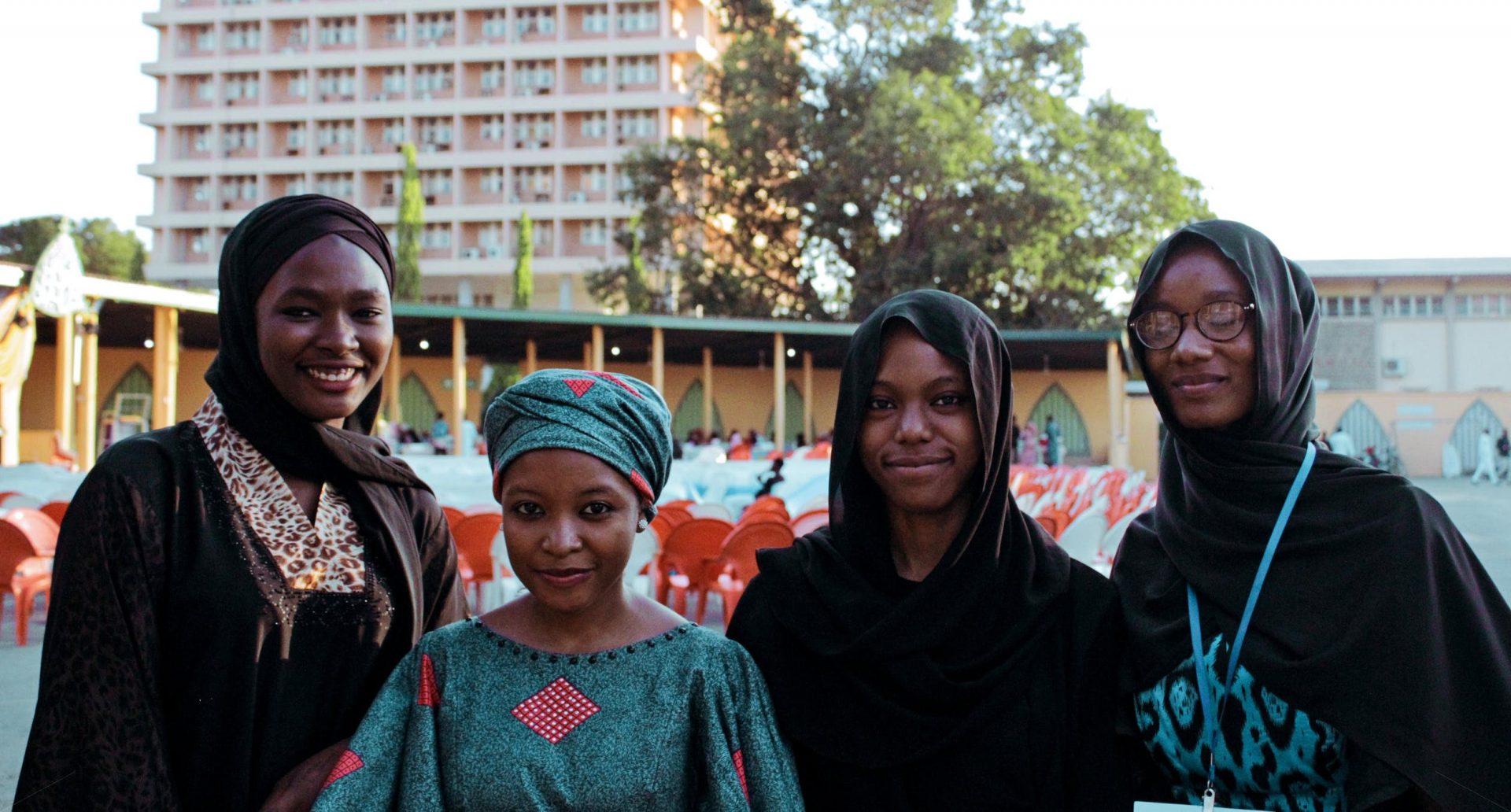Gender Equality and Women Rights in Islam: An Everlasting Respect to all Women Across the World
Since the beginning of the Prophetic message, Islam has cherished, honoured and respected women all ethnicity. It came as the divine truth that served as a message for all, prioritising empowerment in a then disenfranchised world. In simple terms, it set the notion of true human rights and equal rights and argued the reality of our condition – gender equality or gender parity in the eyes of God. As we commemorate International Women’s Day (IWD), we glance at the prodigious contributions of female role models and women leaders across the world to choose to challenge gender inequality.
Any discussion around gender equality has the propensity to turn ugly really quickly, no prizes for guessing why. In an age where social media has quite overtly overthrown traditional mediums of conversation, it can rapidly turn into a gender war fuelled with egos, ignorance and more egos. But this year’s theme is set to challenge this norm. On international women’s day, we raise awareness of the societal, individual, economic and political achievements of women.
What experiences did women face prior to Islam?
The advent of Islam – and subsequently women’s rights in Arabia – came at a time when the world saw women’s advocacy and equal opportunities as a threat to their way of living. The pre-Islamic world saw women being abused, humiliated and deprived of their basic human rights Islam came to offer.
It was a world where the baby daughters were buried alive across Arabia in paganistic rituals. A world where women were prevented from receiving an education. Islam came at a time where women had little to no inheritance/property rights. But all of this changed with the coming of one man, the final Messenger to Mankind – the Prophet Muhammad (peace and blessings be upon him).
The Prophet Mohammad (peace be upon him) addressing gender stereotypes:
With the arrival of the Prophet Mohammad (peace and blessings be upon him), society began to empower and support women. The masses began to appreciate women as not just fellow members in the community, but as individuals that have a unique purpose in the World. The mother, for example, is given a profound appreciation in the tradition – where obedience to her commands is obligatory, and seeking her pleasure is a way to seek the pleasure of Allah (swt).
A man came to the Messenger of Allah (peace and blessings be upon him) and asked, “Who among people is most deserving of my fine treatment?” He (peace and blessings be upon him) said, “Your mother”. He again asked, ”Who next?” “Your mother”, the Prophet Mohammad (peace and blessings be upon him) replied again. He asked, “Who next?”. The Prophet (peace and blessings be upon him) said again, “Your mother.” He again asked, “Then who?” Thereupon he (peace and blessings be upon him) said,” Then your father.” (Bukhari and Muslim).
Ibn Battal, one of the commentators on the collection of Bukhari, mentions that this is a special rank given to the mother in light of the “unseen sacrifices” she goes through in birth, breast-feeding and nurturing the child when he is an infant (Fath al-Bari).
This is similar to the verse in the Qur’an,
“And We have commanded people to ˹honour˺ their parents. Their mothers bore them through hardship upon hardship, and their weaning takes two years. So be grateful to Me and your parents. To Me is the final return.” (13:14).
The mother’s pain, struggle and sacrifice during those key stages in child-development tends to be unappreaciated. The son or daughter that grows up does not see the effort of their upbringing. Allah wanted to bring this ‘unseen’ (unappreciated) sacrifice to our attention and remind us about the virtue of our mothers.
The great female legacy of Islam
A gender-equal world – where men and women both strive to earn the pleasure of the Divine – was not merely a consequence of contemporary discussions in the United States New York and the united nations. Centuries prior, Islam had rung the call for the empowerment of women, to give rise to a society that compliments each other in advancement and progress.
Women’s equality, for instance, can be witnessed in the profound contributions they had in an institutional change in the Muslim world, or building generations of jurists, thinkers and leaders.
Be it through raising incredible leaders like Salahudeen al-Ayyubi, or scholars and gnostics like Rabi’a al-’Adawiyyah setting a standard for the wayfarers, women continued to play a major part in the spreading of Islam and the guidance of the masses. They chose to challenge voices that suppressed female effort.
This was the case in the early-generations of Islam as well (named as the Salaf – our predecessors). The daughter of the Prophet Mohammad (peace and blessings be upon him) – Fatima (may Allah be well-pleased with her) – serves as a pivotal figure in the Islamic tradition. She was so beloved to the Prophet Mohammad (peace and blessings be upon him) that he would stand up and give her his seat to sit on at home – a mark of respect in the Arab society.
Fatima (may Allah be well-pleased with her) was also the mother of Hassan and Hussein (may Allah be well-pleased with them both) – the grandchildren of the Messenger of Allah (peace and blessings be upon him) and two immensely loved figures in his noble life. Despite holding such a noble position as the daughter of the Prophet Mohammad (peace and blessings be upon him), the mother of two of his grandchildren, and the wife of his cousin and trusted companion Ali (may Allah be pleased with them all) – her rank is even further elevated by a Hadith recorded in Bukhari and Muslim:
When the Prophet Mohammad (peace and blessings be upon him) told Fatima about his nearing demise, she began to weep, to which the Prophet Mohammad said, ‘O Fatima, are you not pleased that you will be the leader of the women in paradise’.
She was not the only woman to achieve a rank of loftiness from the Prophetic period either. The wife of the Prophet Mohammad (peace and blessings be upon him), ‘Aisha (may Allah be well-pleased with her) was another example of a profound individual in our history. Being the wife of the Prophet (peace and blessings be upon him), she is considered to be from amongst the Mothers of the believers. To add to her status, she was the daughter of the greatest companion, Abu Bakr (may Allah be well-pleased with him), and was the favourite wife of the Prophet (peace and blessings be upon him). From amongst her many intellectual contributions is narrating the second largest number of Hadith, second only to Abu Hurairah (may Allah be well pleased with him). Many of these narrations shed light on the life of the Prophet Mohammad (peace and blessings be upon him) at home, and benefit the jurists greatly in order to produce rulings and extract principles for matters pertaining to familial and personal law.
She was also a proficient and skilled Jurist (Faqihah) and Muftiyah (qualified to give legal verdicts). In fact, she taught many of the leading scholars and jurists after the demise of the Prophet Mohammad (peace be upon him) from behind a partition.
Centuries after these two powerful figures, a woman named Fatimah al-Fihri was born. With a unique passion for learning and a vision to benefit mankind, she established what became the first university in the world – the University of Qarawiyyin – which remains standing till today. It remains a centre for advanced learning in language, Prophetic narrations (Hadith), Quranic exegesis (Tafsir), Jurisprudence (Fiqh, particularly surrounding the Maliki madhab), Theology (particularly around the Ash’ari madhab) and many other sciences.
Like her, there were countless other women that taught, revived and inspired learning in the communities, raising pious households and producing leaders that are remembered till this day. The great jurist, Imam al-Shafi’i, described his educational life as having started only when his mother took him – a young orphaned boy – to Makkah and made him sit in the gatherings of knowledge. It can thus aptly be summarised, that behind every great man is an exceptional woman.
Striving for a better future is the duty of not just UN Women, who work to promote women empowerment. This is a duty deeply rooted in the Islamic tradition. Society is not and cannot be built on toxic gender stereotypes – such as those prior to the advent of Islam. The onus to build generation equality, to further learning, innovation and change for the better, is upon us – the catalysts. We will, collectively, choose to challenge.
Share this
You May Also Like
These Related Stories

The Great Women of Early Islamic History

Spotlight on ethical investments – Healthcare


